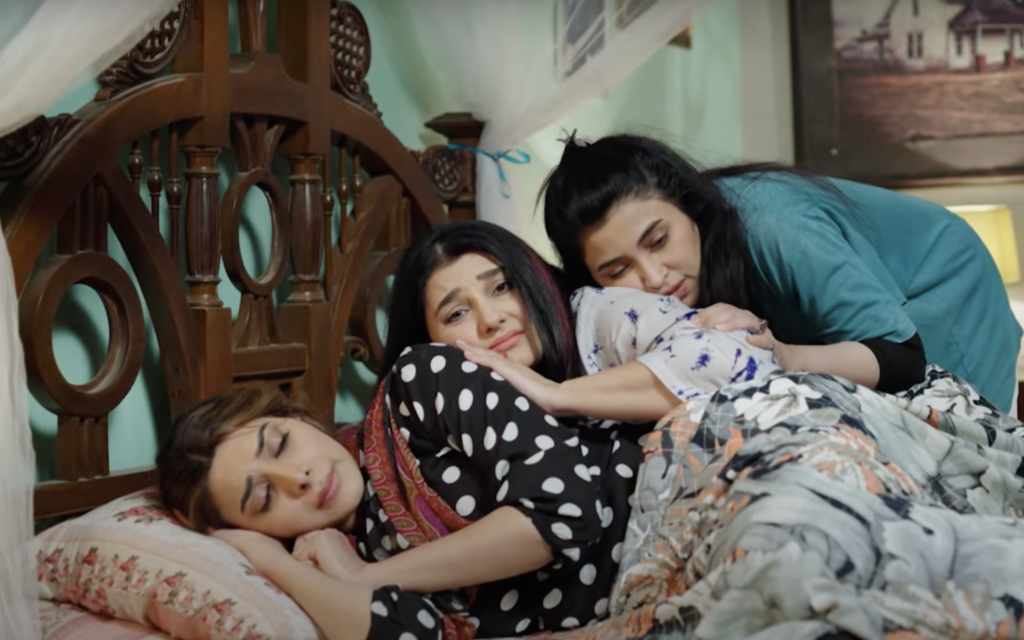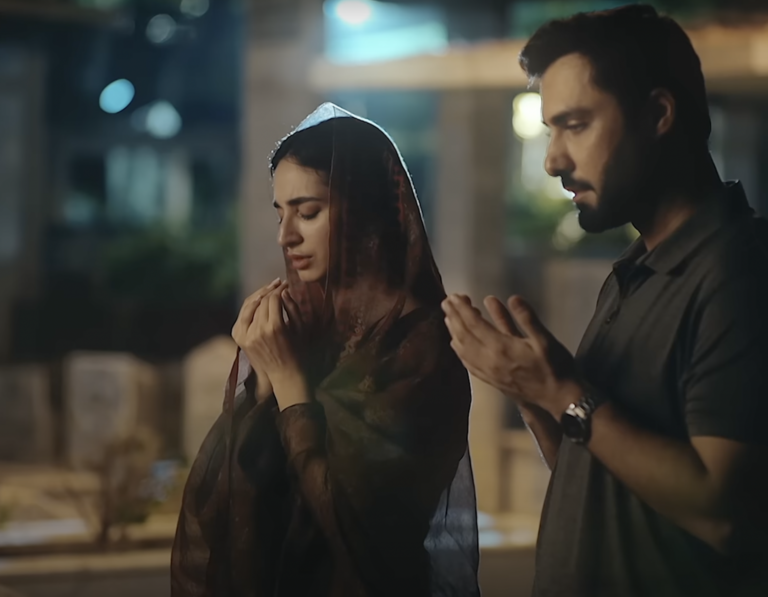In Mohabbat aur Mehangai, Green TV tackles the twin struggles of love and inflation (a bold title choice, if nothing else). Written by Javeria Saud, the drama follows two unrelated families—a wealthy but emotionally stunted upper-class household and a broke, constantly bickering lower-income family— who collide in a story that pumps up clichés to deafening volumes. The show is packed with familiar tropes, but instead of adding texture, it offers hollow cutouts of melodrama, amplified to absurdity.
The struggling family is anchored by the insufferably moralistic Haya (Eshal Fayyaz), the sole breadwinner supporting two vain, lazy sisters and a freeloading brother. Across the economic divide is an upper-class household led by Shayan Malik (Malik Aqeel), a rising star in the entertainment industry and his momager also a faded celebrity drowning in delusions of her former glory.
Why We’re Disappointed:
Let’s start with Haya. Her character is supposed to be the moral compass of the show, but instead, she’s a sanctimonious buzzkill who sucks the air out of every scene. Eshal Fayyaz’s wooden performance doesn’t help; she delivers lines like “have some shame and fear of God” with all the grace of a school principal scolding delinquent students. While her family is undeniably frivolous, at least they know how to live a little—something Haya should try between her constant finger-wagging.

The wealthy household offers little respite. Shayan Malik’s storyline should’ve been a saving grace, thanks to Malik Aqeel’s solid performance, but even he can’t salvage the script’s tone-deaf absurdities. Shayan’s love interest, Sona, has been “involved” with him for six years, despite looking barely out of high school. The subplot about her being pressured into an arranged marriage—and her subsequent suicide attempt—is handled with shocking cruelty and insensitivity. Instead of empathy, her father berates her for angering God, and Shayan himself dismisses her actions as childish.
Javeria Saud, who has carved out a niche playing overbearing, slightly foolish women, is in full caricature mode as Sitara Jee for most of the first three episodes. Her character’s antics—whining, screeching, and wallowing in self-pity—are grating, to say the least. But in a rare moment of sincerity, she finally drops the cartoonish facade. In a touching scene, Sitara reflects on her glory days as an actress and the material wealth and admiration she’s since lost. It’s a glimpse of the vulnerability that could’ve made this character compelling if only it were sustained.

Why It Almost Works:
Episode four finally brings the two storylines together as Pappu, the freeloading brother from the struggling family is hired as a spot-boy for Shayan Malik. This convergence promises drama as Sitara’s mysterious past begins to cast a shadow over the present. And, for a moment, the show remembers it has heart. Sitara’s reconciliation with her younger sister, as they embrace and acknowledge their shared pain, is genuinely moving.
But one good scene doesn’t save three episodes of shrill, stilted dialogue, over-the-top acting, and tonal confusion. The show tries to be funny and serious at once but fails miserably at both. Unemployment and inflation—timely and relatable topics—are reduced to punchlines, while the grim realities of suicide and societal cruelty are treated with an almost gleeful lack of sensitivity.
Verdict:
Mohabbat aur Mehngai has moments where it flirts with depth, but those flashes are drowned out by its screechy, chaotic tone and reliance on shallow tropes. Green TV has built a reputation for thoughtful, quality content, but this show is a glaring misstep. If you’re looking for nuance, skip this one; if you’re looking for a lesson in how not to write compelling drama, this is a masterclass.




 Saim
Saim 

 Naqsh begins today, taking over the Faraar tim
Naqsh begins today, taking over the Faraar tim








